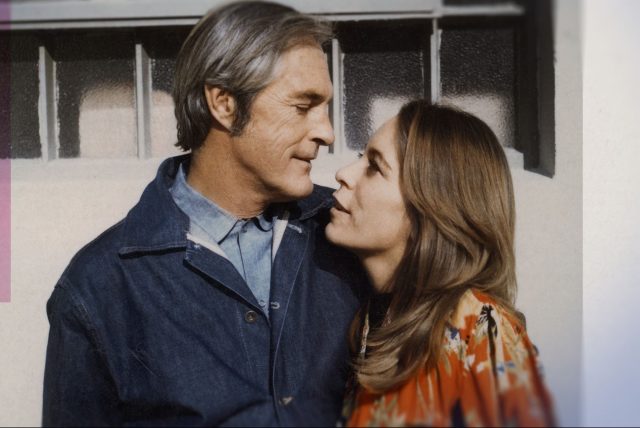AFI Fest 2020: My Psychedelic Love Story, by David Bax

My Psychedelic Love Story is an Errol Morris movie and you only need to take a quick scan of the subject matter to surmise which kind. The overstuffed montage and quirkily pulsing score (by Paul Leonard-Morgan, Morris’ collaborator for most of the last decade) are constants in his work but this isn’t issues-based (The Thin Blue Line, Standard Operating Procedure) and it’s not a look into the soul of a political villain (The Fog of War, The Unknown Known). No, this is Morris working in the human interest mode of films like Tabloid or his New York Times Op-Docs shorts. Admittedly, he hasn’t mined anything truly great from that vein since 1997’s Fast, Cheap & Out of Control but My Psychedelic Love Story still has more than enough joy, pathos and genuine laughs to entertain us.
Joanna Harcourt-Smith, who passed away just over a week before the movie’s premiere, wrote the memoir upon which My Psychedelic Love Story is based, detailing the years from 1972 to 1977 when she was, as one reporter awkwardly puts it in a bit of archival footage, “Timothy Leary’s woman.” They were never married but she met him during his exile in Switzerland, was arrested along with him in Afghanistan, lobbied for his release during his years in prison in California and lived with him in the Witness Protection Program in Santa Fe.
Morris relates this story by interviewing Harcourt-Smith at length and then supplements that footage and audio with a smorgasbord of era-specific graphics and fonts. Mostly, these are ironic, looking less like authentic recreations of contemporary artwork and more like the K-tel version of the psychedelic 70s. But Morris does apply an effect to archival photos that causes them to subtly swim and distort in a true hallucinogenic fashion.
More important an ingredient than any visual trick, though, is Harcourt-Smith herself. Morris clearly loves her–we hear his voice from time to time reacting to her grinning outrageousness–and it’s hard not to feel the same way, even as she seems like a highly mockable example of the trust fund hippy stereotype. Letters she wrote to Leary in prison begin with things like, “Beloved all-time star-love…” and she drops names constantly; one story casually includes “this friend of mine, Diane von Furstenberg.” But her nonchalant positivity and her knowing, beaming smile are intoxicating. She’s too cool to make fun of.
Harcourt-Smith’s undeniable charm, in fact, is part of the reason some have long believed she was a kind of deep cover agent, sent to get Leary back to the United States and to prison. Though Leary believed in the positive, therapeutic potential of having your mind altered, it’s no surprise that, like so much of post-Summer of Love hippiedom, things took a turn toward the sinister. But with the affable and winking My Psychedelic Love Story, Morris takes us back to a time when conspiracy theories were mostly just wacky fun.



























